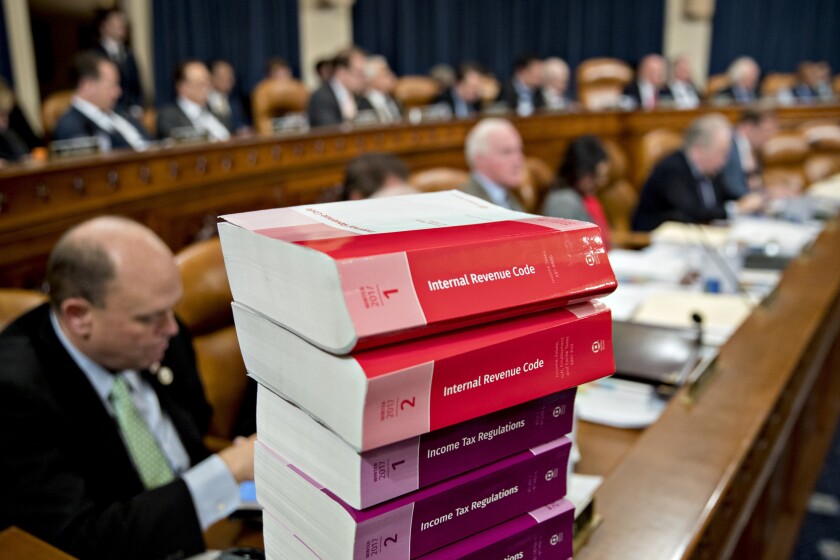The institute released guidance on how to account for forgivable loans under the Small Business Administration’s Paycheck Protection Program.
A fresh look at the Paycheck Protection Program suggests other ways businesses may want to think about it.
The Internal Revenue Service won’t charge people who threw their stimulus money away because they thought the envelope was junk mail.
The financial landscape is looking worse than lawmakers expected, sending states to ferret out every opportunity to expand, demand, and open new and broader tax pipelines. No business will be spared.
The bill, which passed the House last week on a 417-1 vote, now heads to President Donald Trump’s desk for his signature.
The payroll provider has been partnering with accountants to help them secure loans for their small businesses.
The CARES Act included several provisions allowing companies to claim net operating losses for past tax years, temporarily reversing some of the limitations in the Tax Cuts and Jobs Act.
Members of both parties raised concerns that the requirements for participating in the Municipal Liquidity Facility and Main Street Lending Program are too restrictive to benefit smaller localities and certain midsize firms.
Senate Majority Leader Mitch McConnell will attempt to expedite approval of changes to the popular Paycheck Protection Program aimed at giving small businesses more flexibility in using the money from the fund, according to Senate aides.
Bill Smith, managing director of the National Tax Office of CBIZ MHM, discusses the loan forgiveness provisions of the PPP, along with the employee retention credit, net operating loss carrybacks and economic impact payments, along with the prospects for the next round of stimulus in Washington.













